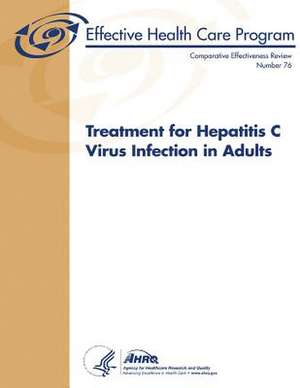Treatment for Hepatitis C Virus Infection in Adults
Autor U. S. Department of Heal Human Services, Agency for Healthcare Resea And Qualityen Limba Engleză Paperback
Preț: 264.26 lei
Preț vechi: 278.18 lei
-5% Nou
Puncte Express: 396
Preț estimativ în valută:
50.58€ • 54.96$ • 42.52£
50.58€ • 54.96$ • 42.52£
Carte disponibilă
Livrare economică 31 martie-14 aprilie
Preluare comenzi: 021 569.72.76
Specificații
ISBN-13: 9781483983479
ISBN-10: 1483983471
Pagini: 394
Dimensiuni: 216 x 280 x 21 mm
Greutate: 0.91 kg
Editura: CREATESPACE
ISBN-10: 1483983471
Pagini: 394
Dimensiuni: 216 x 280 x 21 mm
Greutate: 0.91 kg
Editura: CREATESPACE
